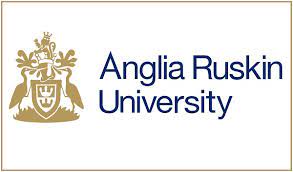Anglia Ruskin University: ARU is investigating how businesses value nature
The Global Sustainability Institute at Anglia Ruskin University (ARU) has stepped up its work looking at how businesses incorporate the natural world in their decision-making by becoming a member of the TNFD Forum.
TNFD, or Taskforce on Nature-related Financial Disclosures, is funded by the United Nations, national governments, and philanthropic foundations, and is working to develop a framework to help organisations understand nature-related risks and change their behaviour.
ARU is closely involved in this area through the work of Ian Trim, an ex-policy official and negotiator on the Paris Agreement, who is carrying out research in the Global Sustainability Institute through a Vice Chancellor PhD Studentship, in partnership with the Institute & Faculty of Actuaries and Swiss Re.
The loss of biodiversity threatens the health of ecosystems that provide fundamental services to the economy, including animal pollination of food crops, natural water treatment and fertile soil.
In its Global Risks Report 2020, the World Economic Forum ranked biodiversity loss as one of its top five global risks in terms of both likelihood and impact. The Swiss Re Institute recently calculated that 55% of global GDP is dependent on biodiversity and ecosystem services.
There is currently no agreed method to calculate these important risks. The Global Sustainability Institute, through the work of Ian Trim, is looking at how these risks should be taken into account across the finance sector, where investments and insurance are the backbone of economic growth and resilience.
Professor Aled Jones, Director of the Global Sustainability Institute at ARU, said:
“Becoming a member of the TNFD Forum will help to ensure Ian’s work has global impact and is as relevant as possible. Ian brings a wealth of experience from UK government and the private sector – in particular in the area of international climate finance. His PhD is jointly supervised by Swiss Re, the second largest reinsurance company globally, which enables access to data and expertise, and is supported by the Institute & Faculty of Actuaries.
“Ian is exploring what could drive companies to incorporate natural capital risks into their economic decisions, by looking at how to bridge the gap between environmental concerns being seen as external to a company’s operations, and bringing them closer to its core strategy. As such, the work will complement that of the TNFD, which is focused on how companies can report risks, and the types of risks and opportunities they should disclose to their investors.”

